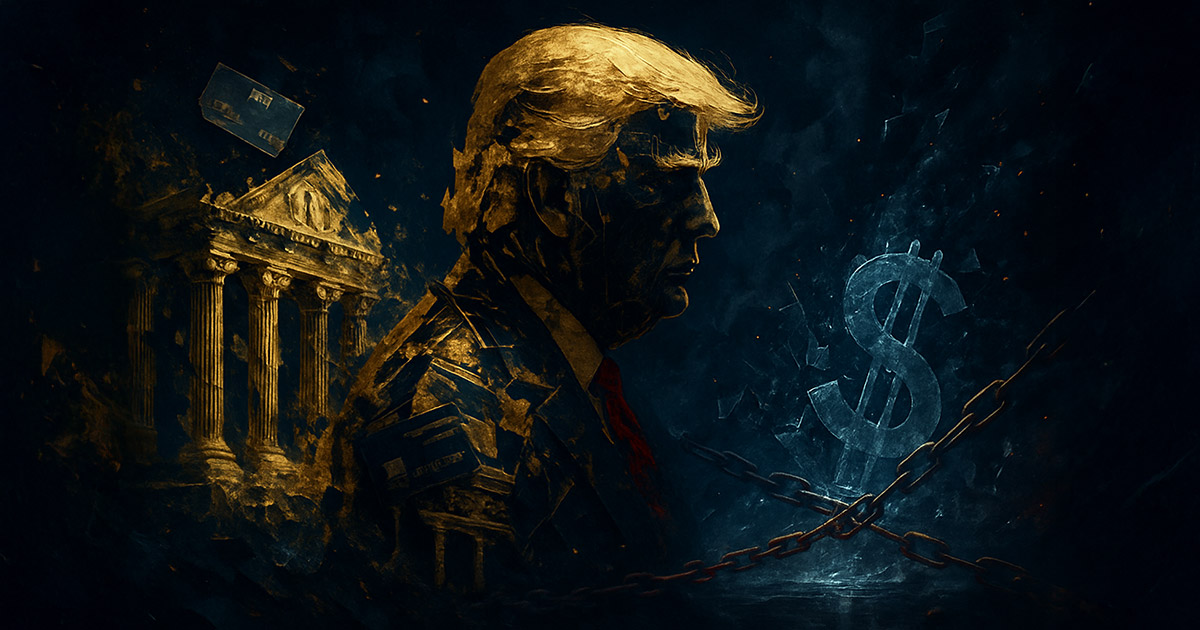Custodia Bank founder Caitlin Long dives into Trump’s debanking executive order

President Donald Trump issued a debanking executive order this week aimed at stopping what his administration described as unfair banking discrimination toward the crypto sector.
Will the order be the definitive blow to the so-called Operation Choke Point 2.0? Will banks that debanked crypto companies unfairly be forced to reinstate them? Custodia Bank founder and CEO Caitlin Long dives into the finer points of the order:
Debanking executive order installs independent overseer
The first “hidden gem,” according to Long, is that Trump’s debanking executive order installs an independent overseer, highlighting the administration’s reservations with the existing three federal banking regulators, the FDIC, the Federal Reserve (Fed), and the Office of the Comptroller of the Currency (OCC).
Instead, it places the Small Business Administration (SBA), a non-bank regulator, as an independent overseer above these agencies to monitor debanking issues. This looks an awful lot like a lack of faith in existing agencies’ willingness or ability to address political and unfair debanking practices.
The SBA’s leader is a long-time Bitcoiner, Kelly Loeffler
President Trump picked Kelly Loeffler, a former senator, business executive, and known supporter of Bitcoin and the broader crypto industry, to lead the SBA. This appointment speaks volumes in the crypto community, as Loeffler was the CEO of Bakkt, an institutional bitcoin futures platform, before her Senate career.
The decision to place her in charge of monitoring debanking is an indication that this administration is serious about reform and that its trust in the previous regulatory agencies is low.
Political leanings inside the banking agencies
Long highlights the political leanings of staff at agencies like the Fed and FDIC. According to contribution records, a large majority of donations from Fed and FDIC staff went to Democratic candidates in recent elections, with Long placing the figure as high as 92% for Democrats in 2024.
This raises concerns for some that regulatory actions may have been driven by partisan biases, especially given the history of crypto-related “debanking” during the Biden administration.
Definition and scope of ‘politicized or unlawful debanking’
Trump’s debanking executive order defines “politicized/unlawful debanking” broadly, focusing on “lawful business activities” rather than naming crypto or any specific sector. This language means banks can no longer refuse service simply because a business is a crypto firm if it is otherwise in compliance. The order targets not just crypto companies, but any lawful firms that may face political discrimination. As Long points out:
“Banks that refused to serve or debanked lawful crypto companies are on the hook.”
The litmus test: Custodia and other crypto banks
Custodia Bank previously faced debanking after regulators pressured multiple banks to cut ties due to their crypto business, even though the bank had a clean compliance record.
Long asserts that the true test of Trump’s debanking executive order will be whether banks that debanked Custodia (and similar crypto firms) are compelled to reinstate them. The order’s success, then, will be measured by real outcomes in banking access for crypto companies.
“If they reinstate us, then the EO succeeded”
Mentioned in this article
[title_words_as_hashtags






